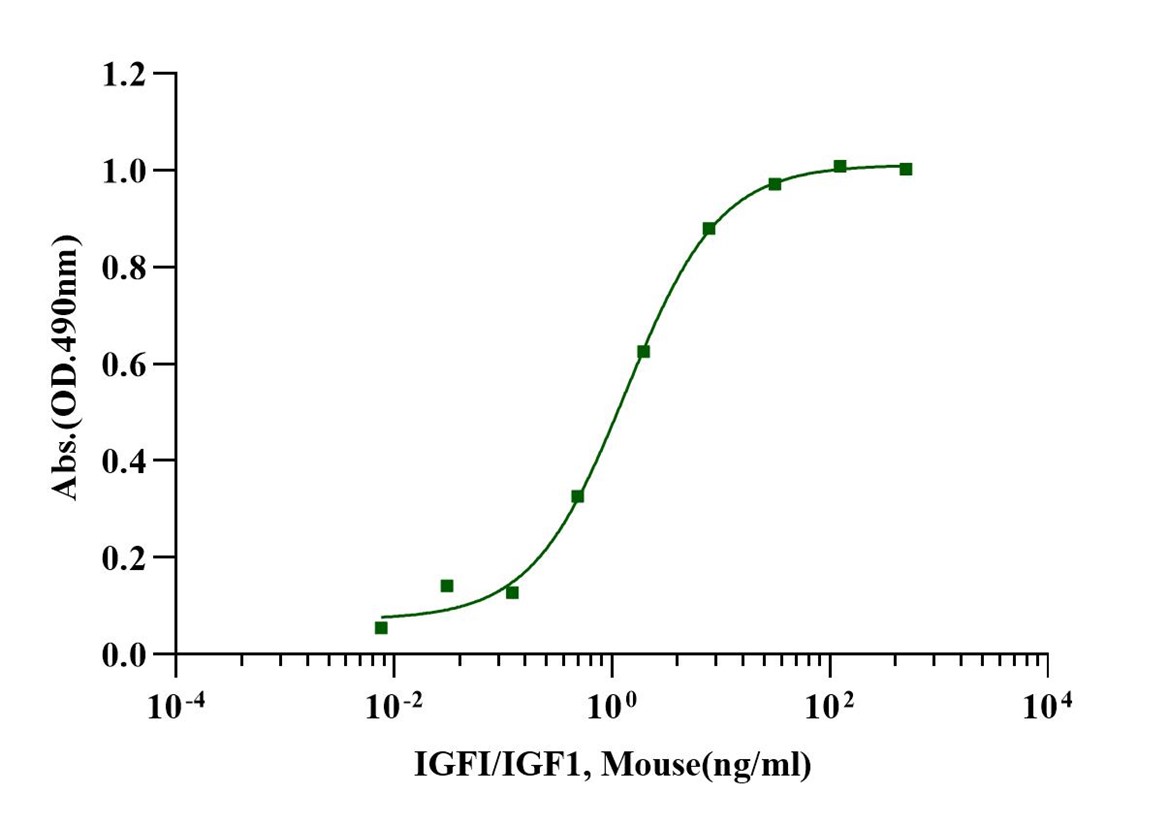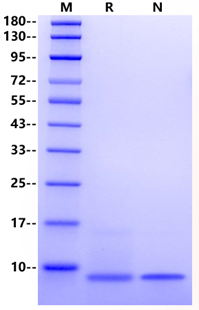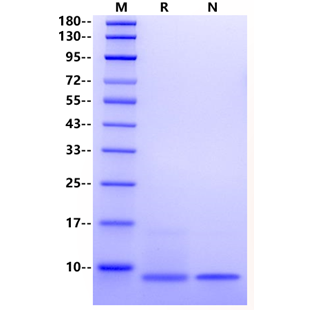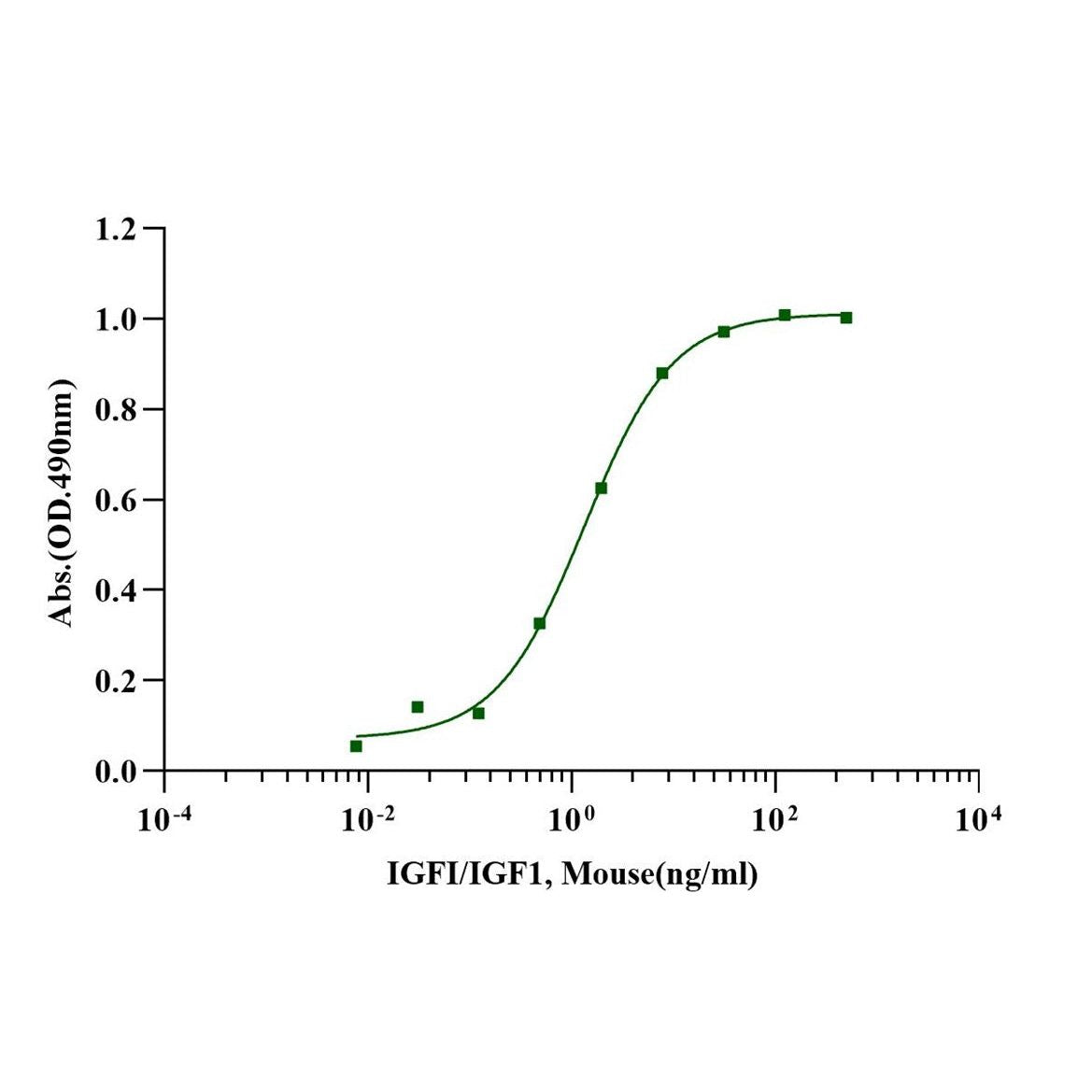Product Details
Product Details
Product Specification
| Species | Mouse |
| Antigen | IGF-1 |
| Synonyms | IGF-I Protein, IGF1A Protein, IGFI Protein |
| Accession | P05017 |
| Amino Acid Sequence | Gly49-Ala118 |
| Expression System | E.coli |
| Molecular Weight | 8-9kDa (Non-Reducing) |
| Purity | >95% by SDS-PAGE |
| Endotoxin | <0.1EU/μg |
| Conjugation | Unconjugated |
| Tag | No Tag |
| Physical Appearance | Lyophilized Powder |
| Storage Buffer | 50mM NaAc, pH6.0. |
| Reconstitution | Reconstitute at 0.1-1 mg/ml according to the size in ultrapure water after rapid centrifugation. |
| Stability & Storage | · 12 months from date of receipt, lyophilized powder stored at -20 to -80℃. · 3 months, -20 to -80℃ under sterile conditions after reconstitution. · 1 week, 2 to 8℃ under sterile conditions after reconstitution. · Please avoid repeated freeze-thaw cycles. |
| Reference |
1.Bartlett WP,Li XS, Williams M. 1992. Brain Res Mol Brain Res, 12: 285-91. |
Background
Picture
Picture
Bioactivity

Measured in a serum-free cell proliferation assay using MCF‑7 human breast cancer cells. The EC50 for this effect is less than 5ng/ml.
SDS-PAGE

1μg (R: reducing condition, N: non-reducing condition).




